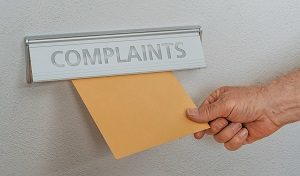Every community, no matter the size, requires a set of governing laws to function properly. Without rules, nations would collapse. A homeowners association is no exception. HOA rules and regulations allow the community to operate without a hitch. They are guidelines that act as the standard by which homeowners must abide.
Whether you’re a homeowner or board member, it’s imperative to understand your HOA rules and regulations. This way, you can know the extent of your association’s authority over a certain subject or action. Rules exist not only to keep residents in line but also to make sure board members don’t abuse their power.
Here’s everything you must know about HOA rules and regulations.
In this article:
HOA Rules and Regulations | CC&R Explained
The CC&R stands for Covenants, Conditions, and Restrictions. Simply put, these are the rules and regulations every homeowner must follow. CC&Rs can include a wide range of HOA regulations, including restrictions on pets and property changes. They also detail the HOA’s covenant for assessments, which are charged to homeowners. Punishments for defaulting on these assessments are also included in the CC&Rs.
New homeowners must agree to these CC&Rs when they purchase a home in a community with an HOA. Therefore, rules remain in place regardless of property ownership.
What Is the ARC?
 The ARC stands for Architectural Review Changes. It’s a committee that sets forth guidelines for how the community looks. It differs from the CC&Rs, which establishes how a community is operated. The ARC committee is responsible for enforcing any restrictions on property exteriors outlined within the CC&Rs.
The ARC stands for Architectural Review Changes. It’s a committee that sets forth guidelines for how the community looks. It differs from the CC&Rs, which establishes how a community is operated. The ARC committee is responsible for enforcing any restrictions on property exteriors outlined within the CC&Rs.
Typical restrictions enforced on homeowners include exterior paint color, the existence of a fence or fence height, garage architecture, or any other overt appearance of a property. For example, if you’d like to build a property within an association, the ARC would dictate how the house must be built. Any exterior renovations, alterations, or additions will also require approval from the ARC committee.
The ARC’s main purpose is to ensure the presence of the association and how it is presented. In other words, the committee won’t approve any property changes that will reflect negatively on the association as a whole.
Between the CC&Rs and the ARC, there are multiple restrictions in place that must be consistent with each governing body. HOA board members can elect to hire a management company to help ensure these restrictions don’t conflict with one another, and all relevant matters are handled efficiently.
Most Common HOA Rules and Regulations
Buying a house or condominium in an organized community means joining a homeowners association (HOA). HOAs are fueled by a set of Covenants, Conditions, and Restrictions or CC&R’s. These ordinances explain requirements, limitations, and guidelines for the property. Covenants benefit neighborhoods as a whole, enforced to retain high property values. In turn, these serve everyone involved in the community.
So, what are the most common HOA covenant regulations?
1. Assessments and Fees
A homeowners association must maintain proper living conditions within the community. However, repairs and maintenance don’t come free. As a result, every homeowner is obligated to pay corresponding fees that go into HOA funds. CC&Rs outline the collection of assessments, as well as the penalties of unpaid dues.
2. Views Blockage
A great view can massively improve the value of a property. Because of that, covenants mandating unobstructed views for neighbors are common.
More often than not, CC&Rs prohibit homeowners from making changes to their property if it means blocking the view of a neighbor. Restrictions usually include trees, fences, and sheds.
3. Pets Restrictions
 While HOA rules and regulations typically don’t prohibit pets, there are often guidelines. Most of these edicts regarding pets pertain to dogs as they are the most common pets in neighborhoods.
While HOA rules and regulations typically don’t prohibit pets, there are often guidelines. Most of these edicts regarding pets pertain to dogs as they are the most common pets in neighborhoods.
These rules range from forbidding specific breeds to limiting the number of dogs you can own. Others even have rules about the weight of the dog you can have. Associations don’t have the right to enter a home and remove pets. However, violations can lead to a legal battle over whether or not specific pets can stick around.
4. Appearance of Properties
 The appearance and maintenance of a property is the most common and controlling covenant for homeowners. It directly affects property value and can cause headaches for negligent parties involved.
The appearance and maintenance of a property is the most common and controlling covenant for homeowners. It directly affects property value and can cause headaches for negligent parties involved.
In condominium complexes, you’ll find strict rules prohibiting any altering of exterior structures. In more conventional communities with single homes, you might find limitations on specific exterior home renovations. This can include the color someone can paint their house.
Furthermore, CC&Rs usually include provisions for lawn maintenance. This can cover everything from mowing and watering to the removal of weeds and dead plants. There are also usually guidelines on landscaping and trash removal.
5. Rental Guidelines
Most HOAs also have regulations in place for renters and landlords. If you plan to rent out your home, you must let your HOA know of the rental to avoid misunderstandings. Make sure the tenants are likewise familiar with the HOA rules and regulations. Tenants are no exception to following the CC&Rs. And, should they violate any rules, as a homeowner, you may face the penalties instead.
6. Common Areas Maintenance
 Rules concerning common areas are also ordinary for a community association. These bonds will have limitations of visitors and parking spaces, which are two things that can disrupt harmony in a community. You’ll also find rules that restrict crowd size, modification, and time of use of such common areas.
Rules concerning common areas are also ordinary for a community association. These bonds will have limitations of visitors and parking spaces, which are two things that can disrupt harmony in a community. You’ll also find rules that restrict crowd size, modification, and time of use of such common areas.
7. Noise
Covenants concerning noise are prevalent and usually welcomed by all members of an HOA. No one wants to deal with loud neighbors who disrupt sleep or disturb a pattern of peace.
Noise must usually be kept to a minimum in the evening into early morning hours in a community. While a violation complaint is in store for someone breaking the rules, a visit from the local police is usually more imminent.
8. Personal Conduct
Personal conduct covenants can seem vague and outright illegal. However, homeowners voluntarily accept agreements, so particular actions are subject to restriction.
Most restrictions are common sense laws. For example, you know it’s wrong to enter another home in the community without permission. You also know throwing a big party can be an inconvenience to neighbors.
On the other hand, some rules can be complicated. There are CC&Rs that restrict which type of door lights you can apply. Others have rules in place for whether or not the vehicle in your driveway is unsightly.
9. Occupancy Limits
One of the more common HOA covenant regulations is occupancy limits. Many associations cap the number of people who can reside in one house. This is done in an effort to combat congestion. While the limit varies per HOA, it usually depends on the home’s square footage. In short, the bigger your residence, the more you can accommodate.
The Importance of Knowing Your HOA Rules and Regulations
As a homeowner, familiarity with the HOA rules and regulations is tantamount to knowing your rights. On the other hand, as a board member, you must know the rules to enforce them properly. It’s also a good way to protect yourself from legal liability.
1. Limitations of Power
With all these rules in place, it may seem like the HOA board wields unlimited power. However, that isn’t the case at all. In truth, the extent of the board’s power is limited by the state and federal law, CC&Rs, and other governing documents.
To know whether your own board is acting within their power, it’s critical to read up on the association’s CC&Rs and bylaws. These documents should detail explicitly what the board is and isn’t allowed to do. Some boards amend the rules without informing the community members of the change. As a result, homeowners may unknowingly breach regulations.
2. Unenforceable Rules
 Whether they are local, state, or federal, laws can change. Sometimes, these newly passed or amended laws can affect your own HOA rules and regulations.
Whether they are local, state, or federal, laws can change. Sometimes, these newly passed or amended laws can affect your own HOA rules and regulations.
For this reason, it’s important to keep up to date on local, state, and federal laws. Moreover, as a member of the board, you must review your CC&Rs to ensure they remain compliant. If they don’t, they’re no longer enforceable.
A good example is denying a potential new homeowner because they have children. That’s discrimination and is in direct violation of the Fair Housing Act. This federal law protects homeowners from discrimination on the basis of race, religion, sex, national origin, familial status, or disability.
You also can’t restrict homeowners from installing satellite dishes altogether because of Civil Code 4725. However, you can impose reasonable requirements like notifying the association before installation.
Can Police Enforce HOA Rules?
The police itself can’t enforce HOA rules and regulations. However, some violation cases may go to court. In these situations, the court may request police involvement on top of rewarding monetary damages. You must note, though, that it’s the court that can ask for the police to intervene, not the HOA.
Are HOA Rules and Regulations Legally Binding?
An HOA asks every new homeowner to sign a document that says he/she has read and understands the CC&Rs. This means that the homeowner accepts the rules and regulations set forth by the HOA. Furthermore, the homeowner agrees to abide by them. Should the homeowner fail to comply with a covenant or rule, the HOA is legally allowed to take action or enforce consequences.
What Happens If You Don’t Follow HOA Rules?
Punishment for non-compliance varies depending on the HOA. However, most associations issue a warning first before moving on to a citation. Should the homeowner still fail to abide by the HOA regulations, it could lead to a monetary fine. Unpaid fines can lead to penalty charges. If worse comes to worst, an HOA can begin foreclosure proceedings.
How Can You Change the HOA Rules and Regulations?
Similar to other governing bodies, the rules and regulations set forth by an HOA don’t have to be permanent. In fact, HOA boards have a duty to review restrictions and make any necessary amendments in order to improve the community.
1. Submit a Formal Complaint
 Individual community members can challenge the rules via different outlets. In most cases, a community member can submit a formal letter to the HOA board. The board members will then make a decision on whether or not to make an amendment.
Individual community members can challenge the rules via different outlets. In most cases, a community member can submit a formal letter to the HOA board. The board members will then make a decision on whether or not to make an amendment.
Unfortunately, some complaints are a matter of budget rather than a specific regulation. Therefore, they won’t always be correctable. In other cases, the regulation may be completely justified. As such, there’s no need to alter it for the sake of one individual.
While it’s important for HOA board members to listen to community members, they can’t always make changes because a rule is unpopular.
2. Become a Board Member
 While you can voice your complaints all you want, being vocal doesn’t always work. If you want to truly make a change for the better, consider running for a position on the board. To do that, your fellow homeowners must elect you into power.
While you can voice your complaints all you want, being vocal doesn’t always work. If you want to truly make a change for the better, consider running for a position on the board. To do that, your fellow homeowners must elect you into power.
Being a board member isn’t as easy as it seems, though. You must remember that board members have certain responsibilities they must carry out. The position may give you the authority to change policies, but it also comes with a good deal of work.
Rules Exist for a Reason
Having properly drafted and enforced covenants is crucial to the long-term future and property value of a community. If you want your community to be peaceful and successful, you should start by enforcing reliable HOA rules and regulations for all homeowners. Without these guidelines, a community can descend into chaos. However, having them in place isn’t enough.
Whether you’re a board member or homeowner, it’s vital to know what you can and can’t do. Granted, it’s your home, but you also signed an agreement with the association when you first purchased it. The rules favor no one, so you must follow them like everyone else. On the other hand, in addition to abiding by the rules, board members must also enforce them to the best of their abilities.
Reviewing and enforcing rules religiously can be tough. HOA board members are volunteers and typically have little to no experience dealing with the complexity of an association. As a result, they often seek the assistance of an HOA management company. If you find yourself in the same boat, give us a call at (855) 238-8488 or email us at help@emspm.com.
RELATED ARTICLES:







